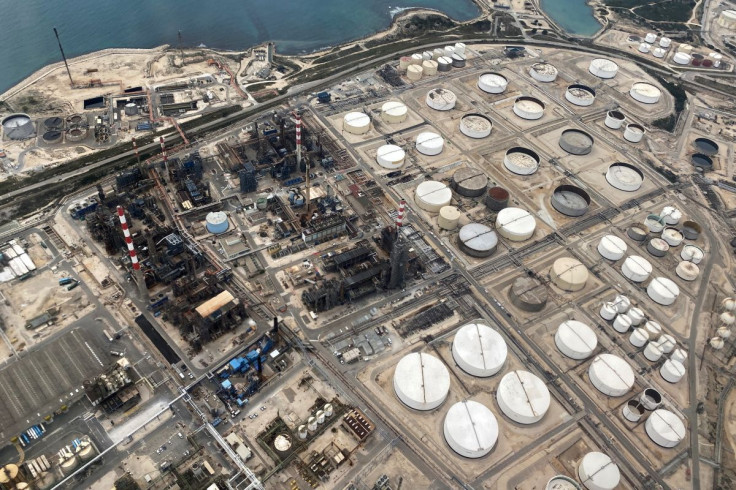Oil Jumps $4 A Barrel As EU Proposes Ban On Russian Oil

Oil prices jumped on Wednesday as the European Union, the world's largest trading bloc, spelled out plans to phase out imports of Russian oil, which offset worries about demand in top crude importer China.
Brent crude futures were up $4.00, or 3.8%, to $108.97 a barrel by 12:40 p.m. EDT (1640 GMT). West Texas Intermediate crude futures rose $4.38, or 4.3%, to $106.79 a barrel.
Europe imports some 3.5 million barrels of Russian oil and oil products daily, and also depends on Moscow's gas supplies.
European Commission President Ursula von der Leyen on Wednesday proposed a phased oil embargo on Russia over its war in Ukraine, as well as sanctioning Russia's top bank.
The Commission's measures include phasing out supplies of Russian crude within six months and refined products by the end of 2022, von der Leyen said. She also pledged to minimise the impact of the move on European economies.
Hungary and Slovakia, however, will be able to continue buying Russian crude oil until the end of 2023 under existing contracts, an EU source told Reuters on Wednesday.
"Russian oil is now 'bad oil'," SEB chief commodities analyst Bjarne Schieldrop said.
"This energy war of 'good oil' versus 'bad oil' has just started," he added.
In the United States, crude stocks rose modestly last week, according to the U.S. Energy Information Administration. Stocks were up 1.2 million barrels as the United States released more barrels from its strategic reserves.
"The Biden Administration's efforts to push crude onto the international market appear to be working, as persistently solid SPR releases are resulting in ongoing robust crude exports," said Matt Smith, lead oil analyst at Kpler.
Fuel stocks fell, in part due to stronger exports of products since Russia's invasion as buyers have sought other sources. [EIA/S]
On Tuesday, oil prices fell more than 2% on demand worries stemming from China's prolonged COVID-19 lockdowns that have curtailed travel plans during the country's Labour Day holiday season.
The global manufacturing purchasing managers index contracted in April for the first time since June 2020, with China's lockdowns a key contributor, Caroline Bain, chief commodities economist at Capital Economics, said in a note.
On Thursday, the Organization of the Petroleum Exporting Countries and their allies are expected to stick to their policy for another monthly production increase.
Investors are waiting for a policy announcement from the Federal Reserve on Wednesday. The U.S. central bank is expected to intensify efforts to bring down high inflation by raising interest rates and starting the reduction of its balance sheet.
© Copyright Thomson Reuters 2024. All rights reserved.





















